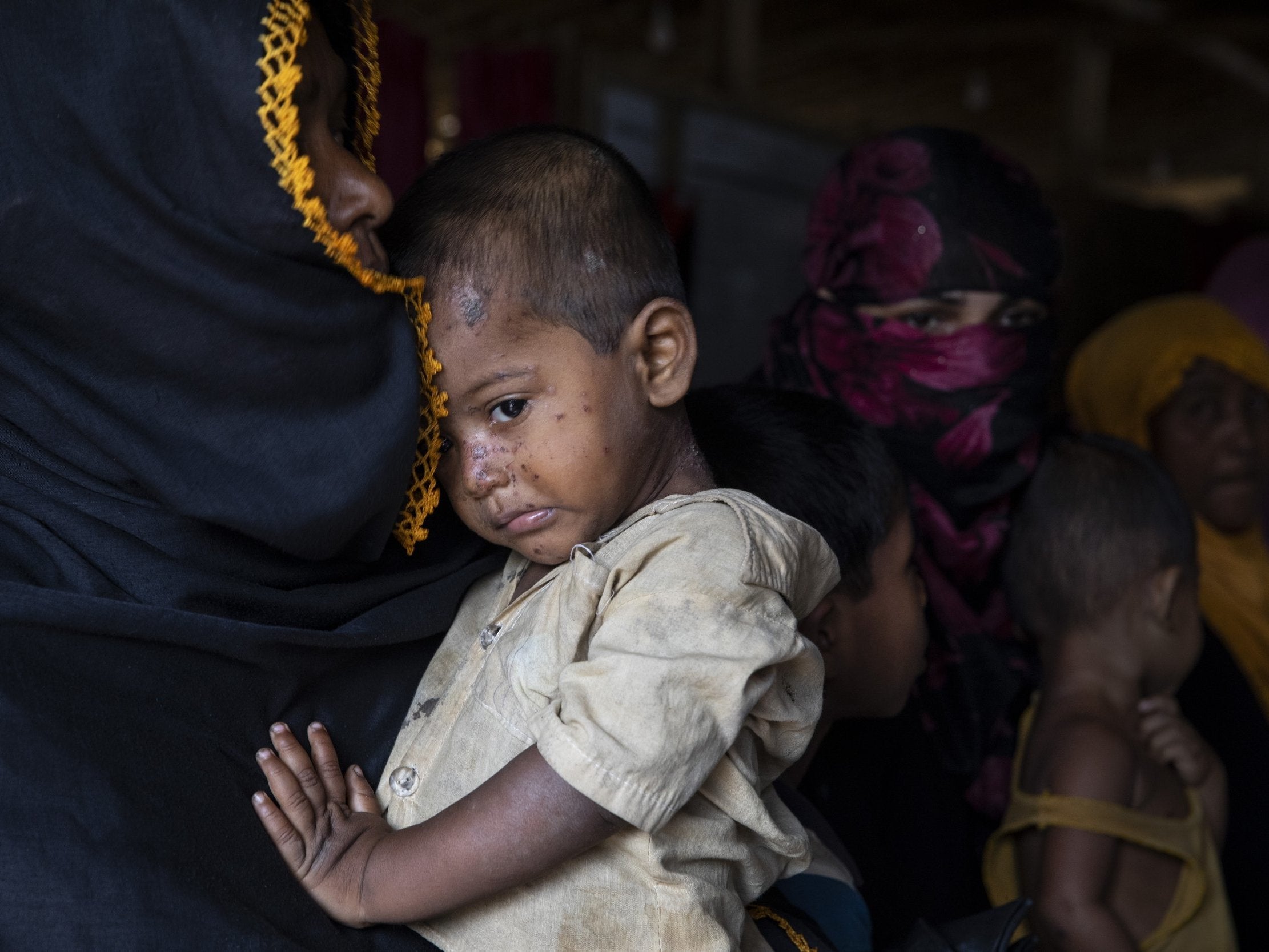‘Their husbands are torturing them’: The ‘shadow pandemic’ of domestic violence in Rohingya refugee camps
‘Girls and women are not safe. I don’t feel safe,’ community volunteer who lives and works in world’s largest refugee camp tells Maya Oppenheim


Sometimes the women I help complain their husbands are torturing them,” Afra* tells The Independent. “Sometimes there’s nothing I can do for them. Once a victim I was supporting was threatened by some men from the community that she will get raped if she doesn’t marry the perpetrator. She wanted to commit suicide.”
Afra lives and works alongside Rohingya Muslim refugees – a group described as the “world’s most persecuted minority” – in Kutupalong refugee camp in Cox’s Bazar in southeastern Bangladesh. The majority of the Rohingya refugees who live in the sprawling never-ending labyrinth of tarpaulin-topped rickety bamboo shacks, which is home to the largest refugee camp in the world, fled there exactly three years ago.
Tuesday marks the third anniversary of the 2017 brutal Rohingya refugee crisis, which saw hundreds of thousands cross the border into Bangladesh to flee an unspeakably violent crackdown by the Myanmar military.
Afra, who supports women suffering domestic abuse in the camp, says the coronavirus crisis is leading to a rise in reports of domestic violence.
“Now husbands are staying at home more, women are being tortured by the husbands more,” the 25-year-old community volunteer adds. “Intimate partner violence is happening more. Most of the time, victims are locked in with their husbands.”
Aid workers warn the camp where coronavirus is spreading is also being hit by a “shadow pandemic” of domestic violence as the Covid-19 crisis devastates support services for women and girls.
Afra adds: “I face problems sometimes when I go and do door-to-door visits. I face verbal abuse. Men don’t like it if girls do jobs. If they go out in the day time and leave their home. There are some twisted religious views. It’s the practice in Cox’s that girls should be locked in their home.
“Girls and women are not safe. I don’t feel safe. It is a regular thing for men to say bad comments when I do community outreach or simply go outside. It hurts me a lot. Refugee women live in a very congested area and they can’t go out of their home. In the daytime, it is totally prohibited for women to go out in daylight. The water situation point is far from their home. They do this job at night and it is dangerous.”
The mother-of-two, who works with the International Rescue Committee in the camp, explains her husband does not like the work she does but refused to say why he does not approve of it.
Afra says she helped a domestic abuse survivor whose husband had an extramarital affair and left her. After the husband left, two men threatened to kill the woman and walked around her home through the day and the night.
“There’s a practice in the community that women say, we need to try to be with the husbands, we need to satisfy them and make the relationship work out,” Afra adds. “We need to convince men that women’s empowerment is needed for the betterment of the whole society.”
Afra, who is from Bangladesh and is not Rohingya herself, explains there are two groups of people in Kutupalong camp: refugees and the host community.
“Host community people have spacious houses that are nice,” she says. “In front of them on the other side of the road, refugee Rohingya people live in a camp with houses that are very congested. In my house, there are three rooms and I live with my parents there. It is spacious and I have a veranda and balcony around my home.”
Her living conditions are a world away from those of Rohingya refugees who are often squeezed into minuscule shacks which are ten square meters yet are home to up to 12 people. Living in such close quarters makes social distancing nigh impossible for the 1 million Rohingya refugees who live in the camp.
Rohingya refugees have long been living in limbo due to having not been formally given refugee status but are now faced with myriad other worries, as identified cases of coronavirus continue to increase while soap and clean water remain scarce and health facilities remain gravely poor.
*Afra’s name has been changed to protect her identity
Join our commenting forum
Join thought-provoking conversations, follow other Independent readers and see their replies
Comments
Bookmark popover
Removed from bookmarks